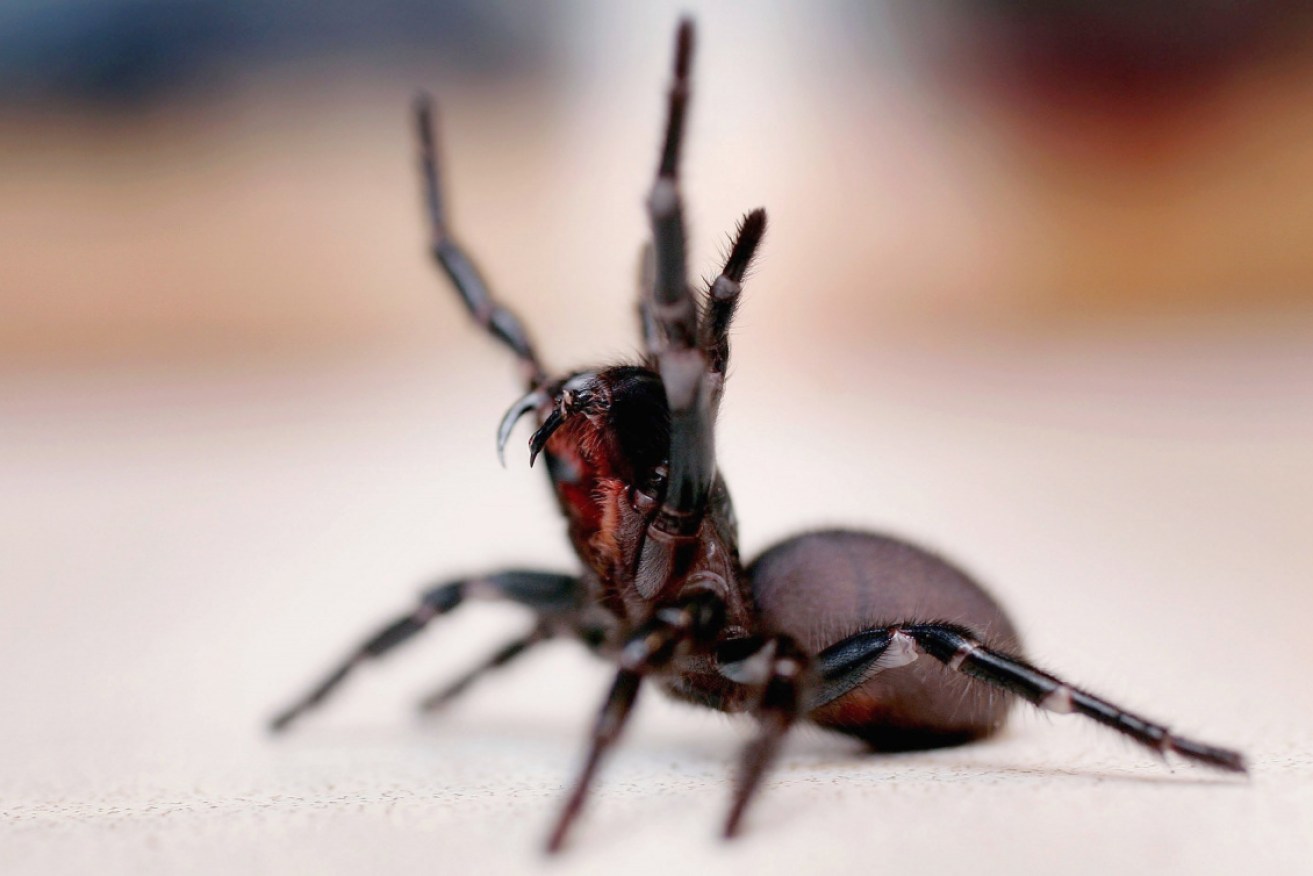Heart attack? Funnel web spiders to the rescue


Without treatment, a funnel-web spider can kill you stone dead in 15 minutes flat Photo: Getty
The venom from a funnel web spider can kill you in about 15 minutes… or potentially save your heart from a death spiral, according to Australian researchers.
Sound like an oxymoron? A little bit.
Experiments with beating human heart cells has led to a drug candidate – developed from a molecule found in the venom of the Fraser Island funnel web spider – that can “prevent damage caused by a heart attack and extend the life of donor hearts used for organ transplants”.
The discovery was made by a team led by Professor Peter Macdonald from the Victor Chang Cardiac Research Institute and Dr Nathan Palpant and Professor Glenn King from the University of Queensland (UQ).
The cascading catastrophe of a heart attack
There’s a lot going on when someone suffers a heart attack.
Firstly, there’s the sudden blockage of blood flow to the heart muscle.
Starved of oxygen, a portion of the heart dies, but it’s more a complicated matter than cell-level asphyxiation.
This lack of oxygen triggers inflammation that brings on a flood of lactic acid, which in turn sets off a signal that triggers necroptosis, a form of programmed cell death.
“Despite decades of research, no one has been able to develop a drug that stops this death signal in heart cells, which is one of the reasons why heart disease continues to be the leading cause of death in the world,” said Dr Palpant, from UQ’s Institute for Molecular Bioscience.
Funnel web venom stops the death signal
The researchers tested a small protein called Hi1a (found in funnel web venom) on beating human heart cells exposed to heart attack stresses. Would the drug improve their survival? Indeed it did.
The Hi1a protein blocked acid-sensing ion channels in the heart, which meant the death message was blocked, cell death was reduced, and heart-cell survival was improved.
This was the first time that ion channels “have been identified as a target for treating the fallout after heart attacks”.
It’s a big deal because there are no drugs in clinical use that prevent the damage caused by heart attacks.
Keep in mind here that while cardiac arrest kills people within minutes, a heart attack is generally survivable in the short term, but one in 10 people will die within a year.
Also useful for transplant hearts
Professor MacDonald, who is also a senior cardiologist at St Vincent’s Hospital in Sydney, said the survival of heart cells was vital in heart transplants.

Professor Glenn King found the funnel web protein helped with stroke recovery. Photo: UQ
“Treating hearts with Hi1a and reducing cell death will increase how far the heart can be transported and improve the likelihood of a successful transplant,” he said.
Ordinarily, if a donor heart has stopped beating for more than 30 minutes before retrieval, it can’t be used.
“Even if we can buy an extra 10 minutes, that could make the difference between someone having a heart and someone missing out. For people who are literally on death’s door, this could be life changing,” he said.
Another potential benefit: Donor hearts could be transported over longer distances, “therefore increasing the network of available donors and recipients”.
Not just the heart
The Hi1a protein isn’t a new discovery.
Previous work by UQ’s Professor King showed that the spider protein markedly improved recovery from stroke – reducing damage to the brain “even when it is given up to eight hours after stroke onset”.
Professor King said it made sense to test Hi1a on heart cells, “because like the brain, the heart is one of the most sensitive organs in the body to the loss of blood flow and lack of oxygen”.
In an ambulance, not the emergency room
The researchers have a “vision for the future” in which heart attack victims would be given a dose of Hi1a by first responders in the ambulance.
Professor King said this was particularly important in rural and remote parts of Australia “where patients and treating hospitals can be long distances apart – and when every second counts”.
The researchers hope to begin clinical trials, for both stroke and heart disease, within two to three years.








